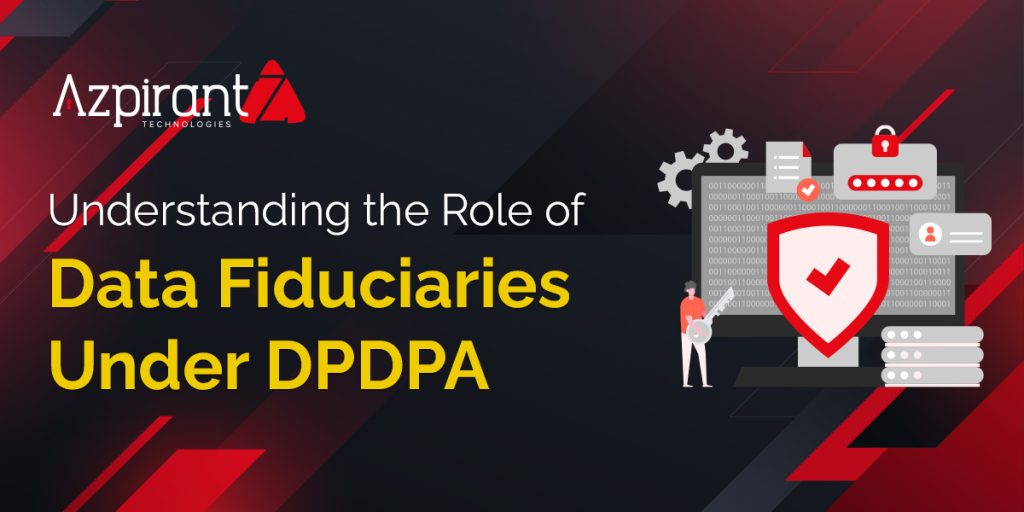Understanding the Role of Data Fiduciaries Under DPDPA
In this modern era, digital interactions are a part of everyday life. And the way how the personal data is collected, used and protected has become a matter of growing concern. Through the introduction of the Digital Personal Data Protection Act (DPDPA), 2023, India made a significant step towards creating a structured approach to the data privacy. Data Fiduciary is the centre of this framework and it plays an pivotal role in how personal data is managed.

A Data Fiduciary is an entity, like a business or organization, that determines the purpose and means of processing personal data under the Digital Personal Data Protection Act (DPDP Act). Essentially, they are the custodians of your data, responsible for its collection, storage, and use.
Data Fiduciaries are held to a set of well-defined obligations under the DPDPA. These requirements are designed to ensure that personal data is processed responsibly and securely, while also empowering individuals known as Data Principals with greater control over their information.
- Obtaining Valid Consent
Consent is the key aspect of lawful data processing. Data Fiduciaries must obtain free, informed, specific, and unambiguous consent from the individual before collecting or using their personal data. And individuals must have the option or right to withdraw their consent at any time, without having any barriers.
- Collecting Only Necessary Data
Data Fiduciaries should only collect the data that is relevant and necessary for the stated purpose. On this note, collecting the excess amount of data or irrelevant data is not encouraged and it is considered as non-compliant.
- Ensuring Data Security
It is an responsibility for an data fiduciary to implement some amount if reasonable security measures to protect the personal data from breaches, unauthorized access or misuse. These security measures or safeguards should be relevant to the nature and sensitivity of data being handled.
- Transparency and User Rights
Individuals must be clearly informed about how their data is being used and they also have the right to:
- Access their data.
- Correct inaccurate or outdated information
- Request deletion when data is no longer necessary.
- Establishing Grievance Redressal Mechanisms
To support user rights, Data Fiduciaries must have a process in place to address grievances related to data handling. And if an individual raised any concern then it must be responded in a timely manner.
- Limiting Data Retention
Personal data should not be stored forever. Once the data has served its purpose then it must be deleted safely. Retaining data is not considered compliant under DPDPA.
DPDPA also introduces a special category called Significant Data Fiduciaries, which includes organizations that process large volumes of sensitive or high-risk personal data. These could be major tech platforms, financial institutions, or health service providers.
In addition to the general obligations, SDFs must:
- Appoint a Data Protection Officer (DPO) based in India
- Conduct Data Protection Impact Assessments (DPIAs)
- Undergo periodic data audits
These additional measures reflect the greater influence and risk associated with large-scale data processing operations.
Getting DPDPA compliance right isn’t just about ticking boxes, it’s about understanding how the law applies to your specific business and putting practical systems in place. That’s where Azpirantz can really make a difference.
Our team works closely with organizations to simplify complex privacy requirements and build solutions that actually work in real-world scenarios. From setting up consent flows to preparing for audits, we help you stay compliant without slowing down your operations.
Need support getting started?
Explore India DPDPA Consulting Services
We're Here To Help


